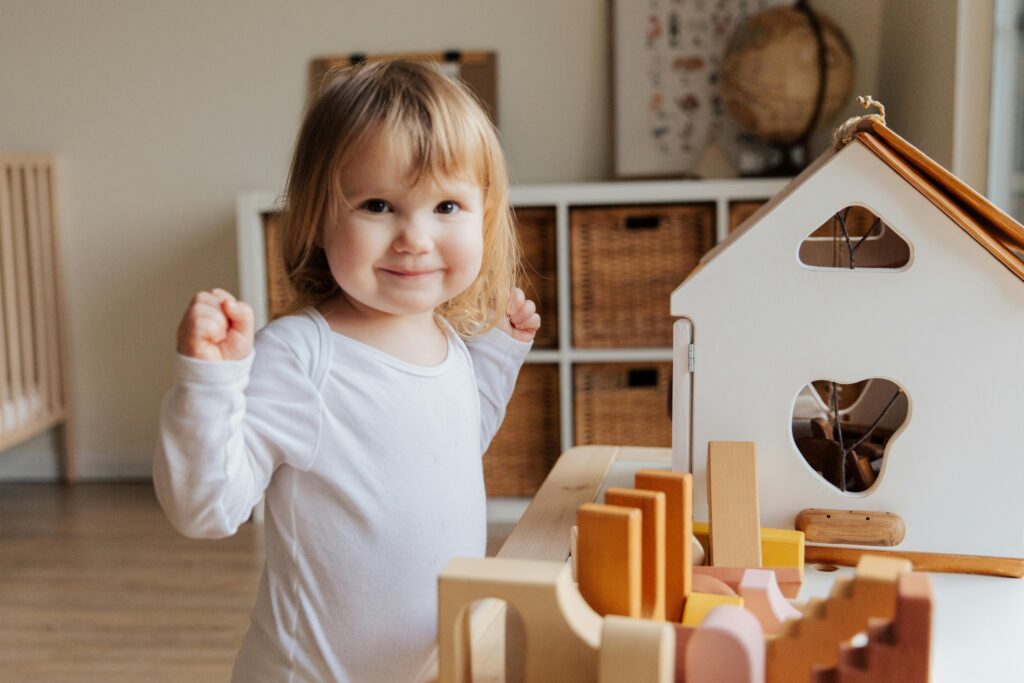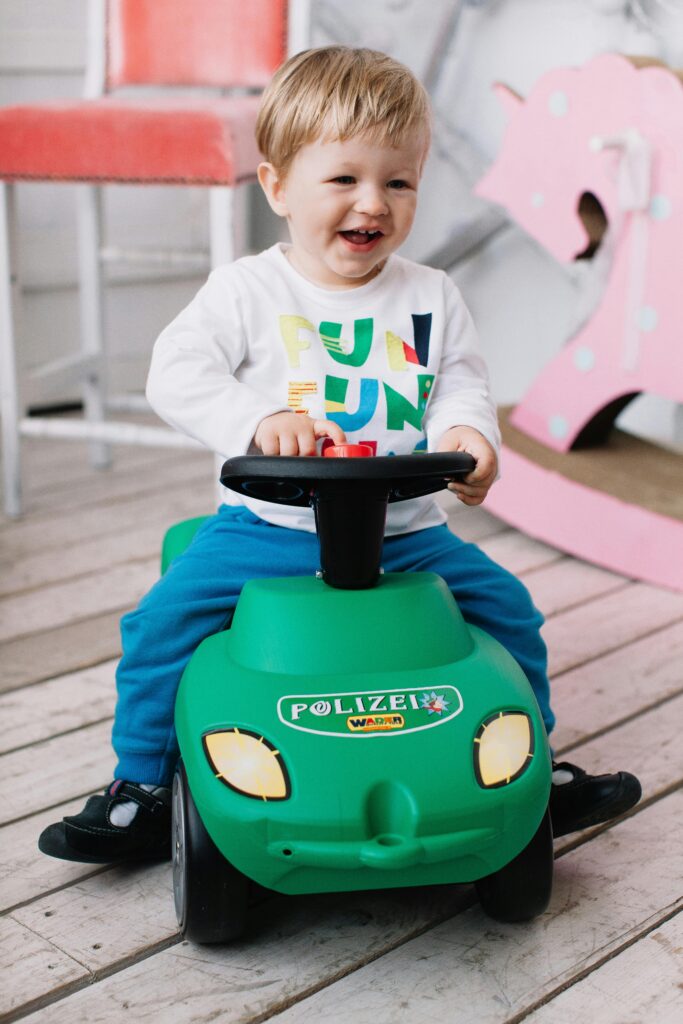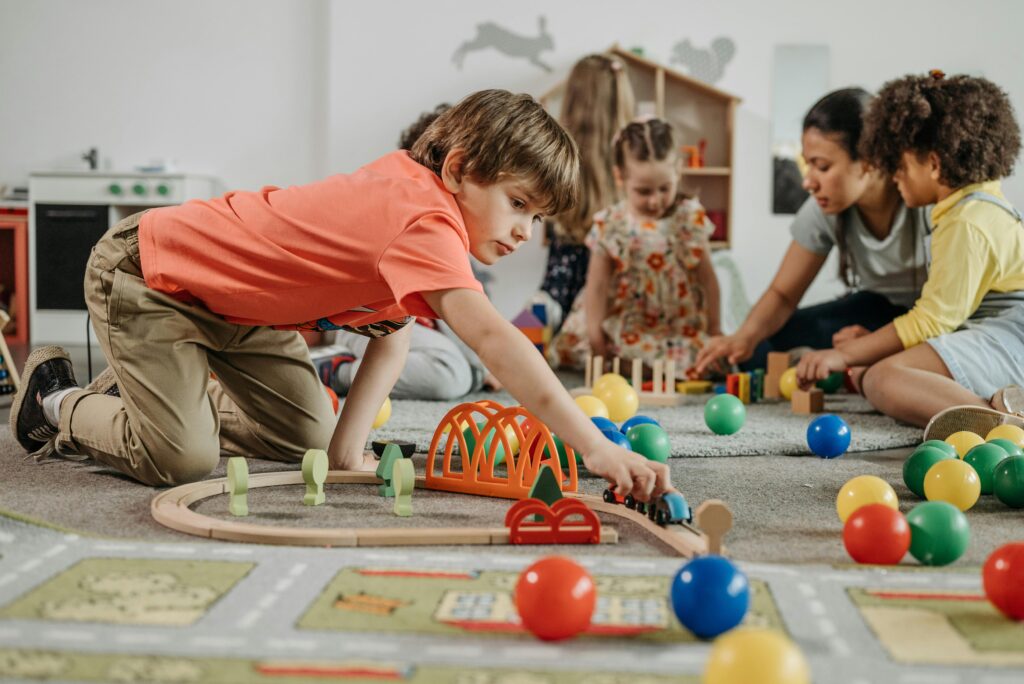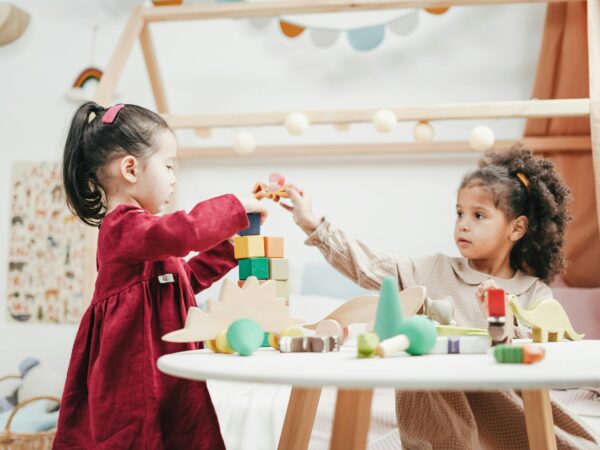
Play is an essential component of toddler development, shaping their physical, cognitive, and social skills. Through play, children engage in activities that foster creativity, problem-solving, and imaginative thinking, laying the foundation for future learning and development.
Physical play, such as running, jumping, and climbing, supports the development of gross motor skills, while activities like building blocks and puzzles enhance fine motor skills.
Furthermore, play provides toddlers with an opportunity to explore the world around them, experiment with cause and effect, and interact with others, building crucial social and emotional skills.
As parents and caregivers, understanding the significance of play in toddler development and providing ample opportunities for children to engage in varied forms of play is paramount in nurturing well-rounded and thriving individuals.
Unlocking the Power of Play: How Exploration Enhances Children’s Cognitive Development
Exploration enables children to develop problem-solving skills, critical for cognitive development. Through play, children engage in various activities that encourage curiosity, creativity, and analytical thinking.
Imagination plays a crucial role in enhancing cognitive skills, as imaginative play allows children to explore different scenarios, develop scenarios, and think outside the box. This type of play fosters cognitive flexibility, leading to improved problem-solving and decision-making abilities.
Additionally, play has a significant impact on language development and vocabulary expansion. When children engage in pretend play, they often take on different roles and communicate with others, which supports the development of language skills and expands their vocabulary. Therefore, fostering a playful environment and incorporating various forms of play into a child’s routine is essential for promoting cognitive development and overall growth.
The Impact of Physical Play on Children’s Motor Skill Development”

Motor skill enhancement through physical play is crucial for the overall development of children. Engaging in activities such as running, jumping, and climbing not only fosters physical growth but also contributes to the improvement of coordination and balance.
Outdoor play offers an array of benefits for children’s physical health, including increased strength, improved cardiovascular endurance, and the maintenance of a healthy weight. Moreover, the role of play in promoting a healthy lifestyle from a young age cannot be understated.
By encouraging regular physical activity through play, children develop habits that can positively impact their long-term well-being, setting the foundation for a lifetime of good health.
Fostering Social and Emotional Development Through the Power of Group Play
Building social and emotional development in individuals is crucial for overall well-being, and play activities play an essential role in this process. Group play provides a platform for children and adults alike to build and enhance social skills, fostering empathy as they learn to navigate and understand the emotions of others.
Moreover, engaging in play activities enables individuals to effectively manage their emotions and stress, promoting mental wellness. Whether it’s through structured games or unstructured free play, individuals can develop self-confidence and independence, allowing them to explore their capabilities, make decisions, and learn from their experiences.
Encouraging and participating in such play experiences can greatly contribute to the holistic development of individuals, nurturing their social and emotional intelligence for a fulfilling and balanced life.
The Power of Parental Involvement: Fostering Play-Based Development in Children
Parental involvement plays a crucial role in fostering play-based development in children. By actively engaging in their children’s play, parents can provide valuable support and guidance, enhancing the overall learning experience.
Creating a supportive environment for play at home is equally important, as it allows children to explore their creativity and imagination freely. This can be achieved by setting up dedicated play areas and providing access to a variety of toys and materials that stimulate different types of play.
Moreover, balancing structured activities with unstructured playtime is essential for promoting well-rounded development. While structured activities help children develop specific skills, unstructured playtime allows for spontaneous exploration and encourages independent thinking. Striking this balance is key to nurturing holistic development in children.

Holistic Toddler Development And The Different Types of Play
When it comes to fostering holistic toddler development, understanding the different types of play is crucial. Imaginative play allows children to explore their creativity and problem-solving skills, while constructive play, such as building with blocks or puzzles, helps them develop spatial awareness and fine motor skills.
Symbolic play, involving pretend scenarios and role-playing, aids in emotional development and social skills. Toys and games play a pivotal role in facilitating these various forms of play, providing the tools and context for toddlers to engage in these activities.
By recognizing and encouraging each type of play, caregivers and parents can actively support the overall development of toddlers, nurturing their cognitive, physical, and emotional well-being.
The Importance of Play in Toddler Development and Cultural and Societal Influences
The impact of cultural diversity on play experiences for toddlers is profound, shaping the way children interact with their environment and learn about the world around them. The recognition of societal norms and values greatly influences toddlers’ play choices, as they absorb and internalize the behaviors and expectations of their community.
It is essential to encourage inclusive and diverse play opportunities for all toddlers, ensuring that every child has the chance to explore and engage with different cultural perspectives.
By promoting an environment that embraces cultural and societal influences on play, we foster empathy, understanding, and acceptance in the next generation, contributing to a more harmonious and interconnected society.
Challenges and Solutions Promoting Play For Toddler Development
Addressing barriers to promoting play in early childhood settings, such as limited resources, lack of understanding about the benefits of play, and pressure to focus solely on academic outcomes, can be a significant challenge. However, by highlighting the numerous cognitive, social, and emotional benefits of play, and providing educational resources and training for educators, these barriers can be overcome.
Additionally, engaging with parents and addressing their concerns and misconceptions about play, such as the belief that play is not valuable for learning, is crucial. This can be achieved through parent education sessions, informative materials, and open communication.
Moreover, strategies for integrating play-based learning in educational institutions include incorporating play into the curriculum, providing teachers with professional development opportunities in play-based pedagogy, and creating supportive environments that value and prioritize play.
By addressing these challenges and implementing effective solutions, early childhood settings can create enriching environments that support holistic child development and academic success.
Conclusion
In conclusion, it’s crucial to recognize the holistic benefits that play offers in the development of toddlers. Play serves as a dynamic platform for enhancing cognitive, social, emotional, and physical skills, laying the foundation for well-rounded growth.
Understanding the significance of incorporating play in early childhood experiences is paramount. As such, it’s essential for parents, educators, and caregivers to actively promote and facilitate play-based learning, fostering an environment that nurtures well-rounded toddlers.
By embracing the value of play, we can empower the future generation with the necessary tools for comprehensive development and lifelong success.

